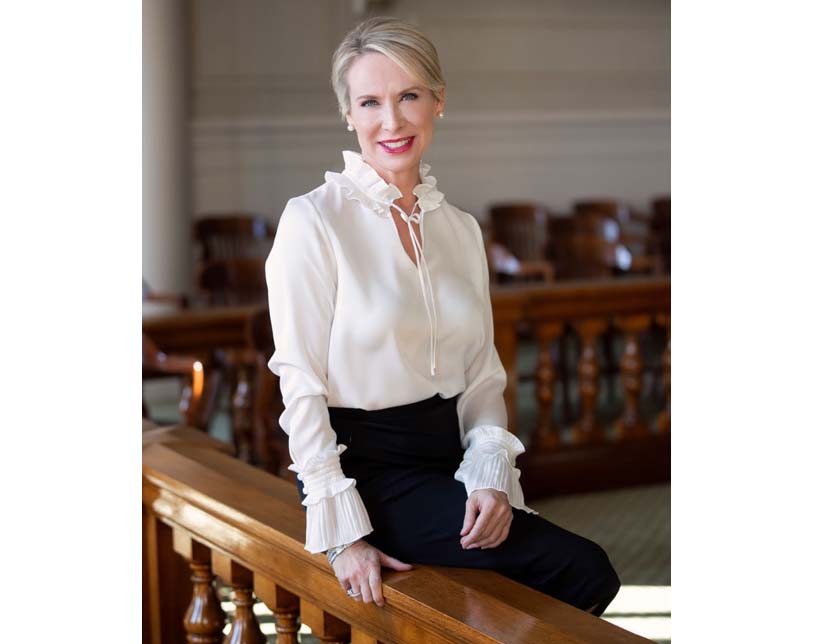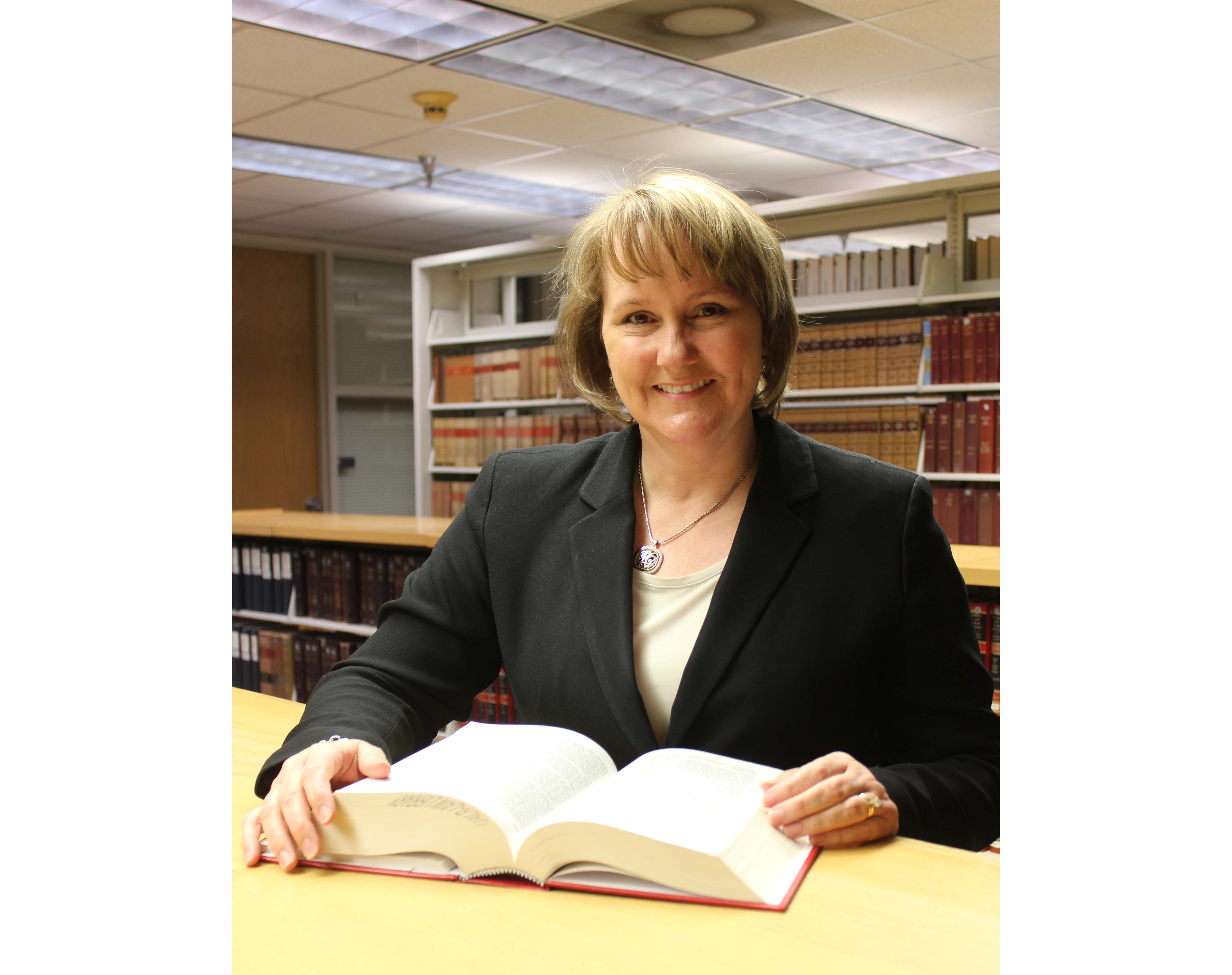SUPREME ETHICS: New entity provides ethical advice to state’s attorneys
July 11-17, 2022
By Dwain Hebda
It’s been a while since Arkansas Supreme Court Associate Justice Courtney Hudson was a nervous, first-year attorney but she remembers well what it felt like when the law stopped being of the classroom variety and started affecting real people in real courtrooms. Of all the things to be learned as a new lawyer, navigating the sometimes fuzzy and always complicated ethical landscape was the most nerve-wracking.
“I remember coming out of law school and just assuming that there would be something like an ethics counsel available for those of us who are new to the practice,” she said. “You’re trying hard, but you need a little mentoring and the legal profession does a very poor job of that, compared to say, medical schools and their residencies and fellowships. That kind of mentorship is lacking in our profession.”
As the supervising Justice for the Office of Professional Conduct (OPC), Hudson was concerned at the regularity with which attorneys would call in seeking direction on ethical issues. The OPC is the state’s enforcement arm, charged with protecting the public against unethical behavior by attorneys by fielding complaints, holding hearings and handing down sanctions against violators.
What the OPC doesn’t do is answer ethical questions — in fact, it’s statutorily forbidden to do so — and phone calls did little more than put an attorney in the awkward position of admitting an ethical dilemma to the very board that could later hear a complaint against them.
Since 2019, Hudson has worked behind the scenes to develop a better way to support lawyers willing to make a good faith effort to clarify ethical questions before they become ethical violations.
“The vast majority of attorneys, generally, are really trying to do the right, ethical thing,” she said. “In an effort to do that, at times they would pick up the phone and call the executive director at the OPC. It wasn’t fair to attorneys to have to make that call, in my mind, because the OPC couldn’t give advice and the attorney is revealing information in a good faith effort to do the right thing that would be used against them later. This isn’t fair.”
The solution was a second entity, independent of the OPC and confidential, that existed only to answer ethical questions for attorneys looking to avoid any missteps now and additional problems down the road. Called the Office of Ethics Counsel (OEC), it joins 40 other states that offer similar mechanisms of support to its licensed attorneys, providing free information and informal guidance, advice and opinion in the areas of attorney ethical conduct and interpretation of the Arkansas Rules of Professional Conduct for Attorneys at Law and for review of proposed attorney advertising, marketing and solicitation materials.
The service, which was created without additional taxpayer funding, is open to any attorney licensed to practice in Arkansas. However, as Boyd Irby, Hudson’s law clerk said, other restrictions do apply.
“One attorney cannot call and ask a question about another attorney’s behavior; they can only inquire about what’s going on in their own world,” he said. “Attorneys also have to be in good standing and their license has to be active.”
Seeking help from the OEC, which officially came online last fall after being adopted 4-3 by the full Supreme Court, is also not a guaranteed “get out of jail free” card should a future complaint arise against the attorney, landing them before the OTC. But it also doesn’t hurt any attorney’s case to now be able to show the lengths they went to make the right call.
“There’s no guarantee that calling the Ethics Counsel and following that advice is going to keep you from having a complaint filed against you or a formal complaint written by the executive director of OPC,” Hudson said. “Some states have supreme court rules that will allow that to be mitigating evidence in the disciplinary proceeding, whether it be towards the merits of what did or didn’t happen or the discipline action that’s chosen. Our court just wasn’t quite ready for that.”
Running the new OEC is a name familiar to many in Arkansas legal circles. Stark Ligon, who for years was the executive director of OPC, made the transition to lead the new office. And even though the response to the new service has been brisk, Stark has still been pulling double-duty by stumping for the new office to spread the word.
“My charge to Stark has been, ‘Take your show on the road,’” Hudson said. “This is something of a PR opportunity to educate attorneys, ‘We’ve got a new tool for you. This is good for you and you can call once, 15 times, 50 times, whatever, and you don’t pay anything extra for it. Let us help you. Help us help you do the right thing.’”
Margaret Dobson of Dobson Law Firm in Sheridan is president-elect of the Arkansas Bar Association (ABA). She said she’s enthusiastic about the new option and what it provides for the state’s attorneys.
“This is invaluable to the lawyer and to the public to help the lawyer make more ethical decisions,” she said. “Some people may think ethical decisions should be easy answers, that they should be simple, that it shouldn’t be hard to choose to do the right thing. That sounds great, but in practicality some of those calls are very difficult.
“The person that comes in to see me about doing an estate plan and 10 years later, they’re getting a divorce, can I represent one of them in the divorce? Or they came in to see me about a guardianship and now somebody’s getting a divorce. Can I represent anyone in that party?
“The Arkansas Bar Association itself referred a question over recently; we were looking at a new member benefit that we wanted to offer our members and we wanted to make sure it didn’t put us in conflict with any of our ethics rules.”
Dobson said the ABA has provided multiple opportunities for Ligon to address the membership to spur use of the OEC. She said having a well-known and respected name at the helm is a big plus.
“It is very nice to be able to refer to Stark who has intimate knowledge with our ethics rules and such tremendous experience and let him research it and look at it and say, ‘I think you’re right. I think you’re OK,’” she said. “And because we have [OEC] now, I think, especially as we continue to encourage our members to utilize it, I think it will help us be better. An ounce of prevention is worth a pound of cure. If we can spot those issues on the front end and know if we’re OK or we’re not OK, it helps us make better decisions.”
Dobson also gave credit to Hudson for having the foresight to develop the new OEC, something she said should have been done long ago.
“Justice Hudson has been a great spokesperson for this and we’re so grateful to her for helping create it,” Dobson said. “Our ethics rules have a very high standard and I love that; we all need to hold to that. But sometimes there’s some gray areas in there and it’s nice to have some guidance to make sure you err on the lighter shade of gray rather than the charcoal side.
“It is intuitive that you should be able to ask questions on the front end and reduce your chances of making mistakes. That’s invaluable to the lawyer and to the public to help the lawyer make more ethical decisions.”
For Hudson, such comments are more than mere validation, it also tells her the legal profession in Arkansas is now at least as conducive to the development of its professionals as it is to punishing its wrongdoers.
“These young attorneys, they want to do right,” Hudson said. “They spent three years in law school, a whole lot of money, they’ve passed the bar, they’re supporting themselves and/or a family. They want to land this right. The Office of Ethics Counsel gives them some comfort knowing that they can shut the door, describe the issue and nobody’s going to tell on them for asking the question. We shouldn’t punish people for not having the resources to find the answers.”
Contact the new office via an ethics helpline at 501.683.4014 or email ethicscounsel@arcourts.gov. More information is also available at arcourts.gov/administration/ethics-counsel. To view the Judge Hudson’s Youtube video on the state’s revamped Office of Ethics Counsel (OEC), go here: https://youtu.be/jZlfm_kaqzo
Photo Captions:
1. SUPREME ETHICS: New entity provides ethical advice to state’s attorneys
2. Arkansas Supreme Court Associate Justice Courtney Hudson (left) serves as supervising Justice for the state Office of Professional Conduct (OPC).
3. Margaret Dobson of Dobson Law Firm in Sheridan is president-elect of the Arkansas Bar Association (ABA).
4. Who You Gonna Call? Supreme Court Associate Justice Courtney Hudson guides revamp of state’s professional ethics office






